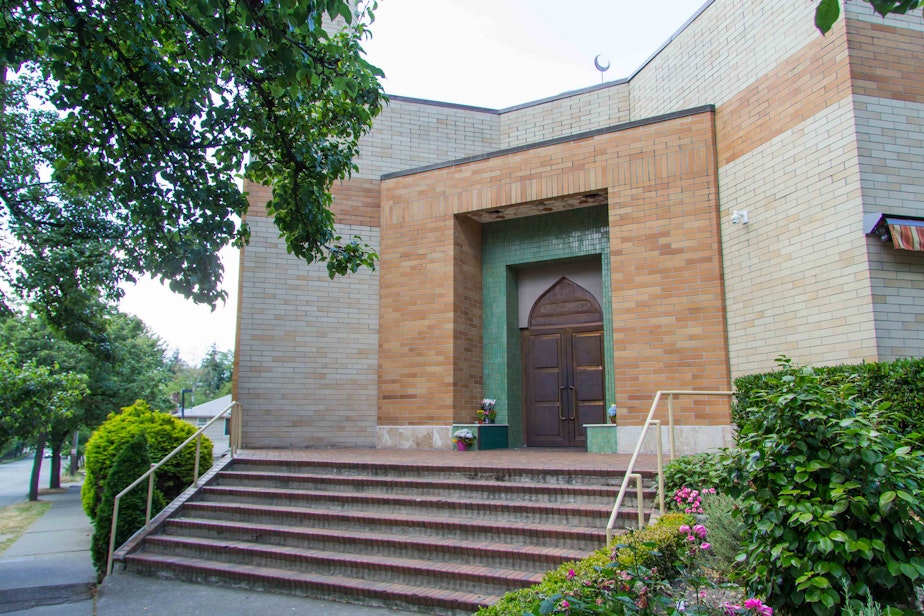Remembering the center of Seattle's Islamophobia, post 9/11

Almost 16 years after the 9/11 attacks, Seattle Mayor Ed Murray is scheduled to give the annual State of the City address on Tuesday at Seattle’s Idris Mosque, a house of worship that was at the center of what was then a new wave of Islamophobia.
On September 13, 2001, a man armed with a gun and a tank of gasoline targeted the mosque near Northgate Mall.
Aziz Junejo, the son of one of the mosque’s founders, tells us in his own words about that incident and what it meant for the entire community.
TRANSCRIPT
After 9/11 happened, the numbers of people worshipping at the mosque went down to a few, a handful of people. There were very few people that night.
Sponsored
This man tried to fire at Muslims as they were coming out of prayers and it was dark outside. He was in the parking lot, doused cars with gasoline. He couldn’t get his gun to work, he couldn’t start a fire and he jumped in his car and drove around the block and smashed into a telephone pole and was taken into arrest.
So the next morning, people just started showing up with flowers, with cards, there were so many candles. The [Church Council of Greater Seattle] said that we want to set up a post here and stay overnight. It was so interesting, many of them brought their lawn chairs, like you would be out at the lake camping and brought reading materials and their sleeping bags. And they were just there with signs and posters, "hate free zone," "protect this mosque." And they were there every single night. It was wonderful.
This is a box, it’s very strong, it has buckles on the side of it. It has all of the cards left at the door at the Idris Mosque, after that event. Here’s one that says "May we all live together, Americans all in love and peace together. – An American sister who sends her best wishes to you."
It’s just overwhelming when you open this box. Those were the people who really came to support us at a time when somebody was going to inflict harm on us. And they let us know – they never had to let us know before— but that event showed us your neighbors are willing to come out and support you when there’s danger. And that’s the same way we feel towards them.
Editor's note: The Seattle Times reported that the assailant, Patrick Cunningham, would later express regret and remorse. During his sentencing, he had said he was an “at-home” alcoholic and had become delusional after 9/11. Cunningham later developed Lou Gehrig’s disease and lost the use of his legs. Cunningham’s sentence was vacated and he was released on July 15, 2004. He died three weeks later.

